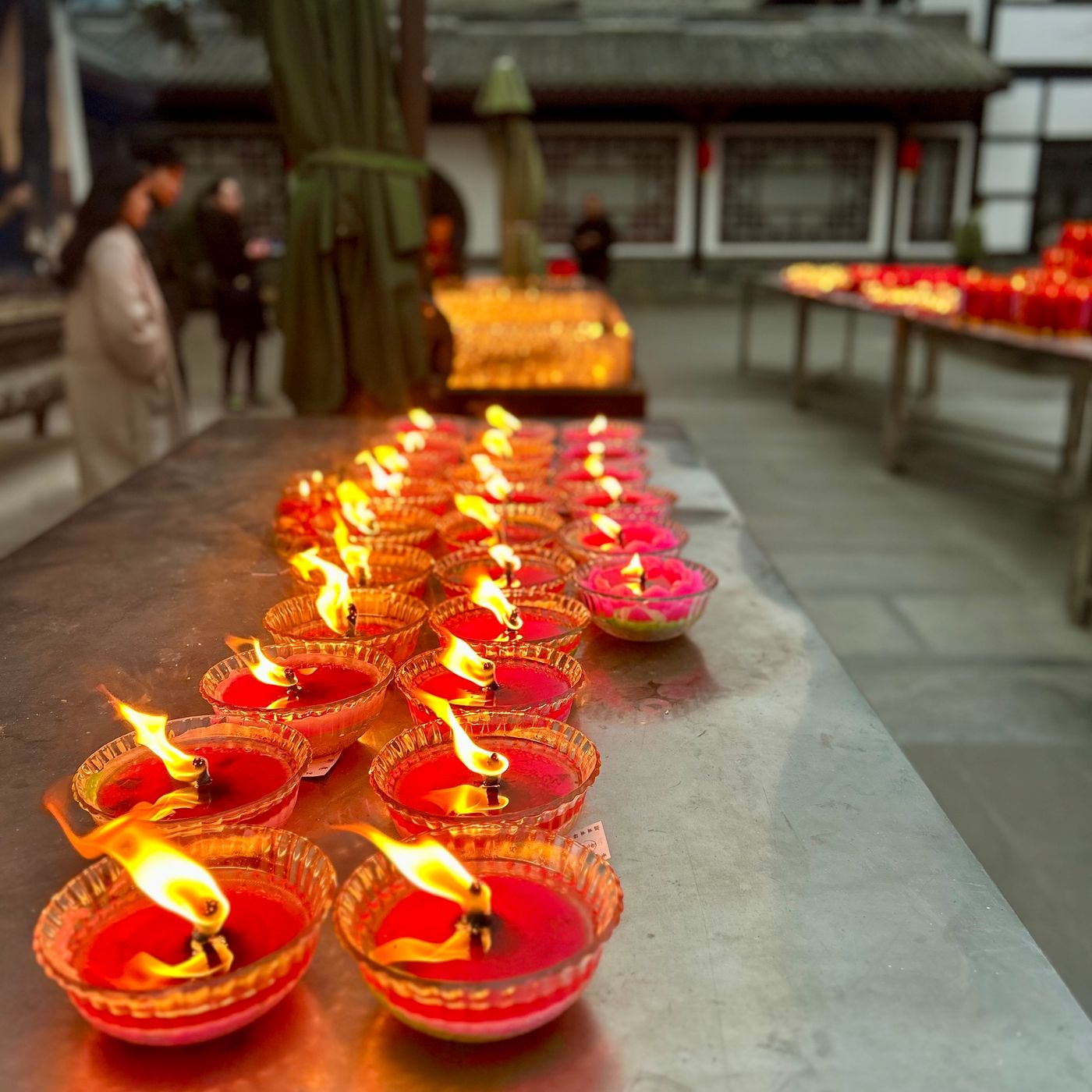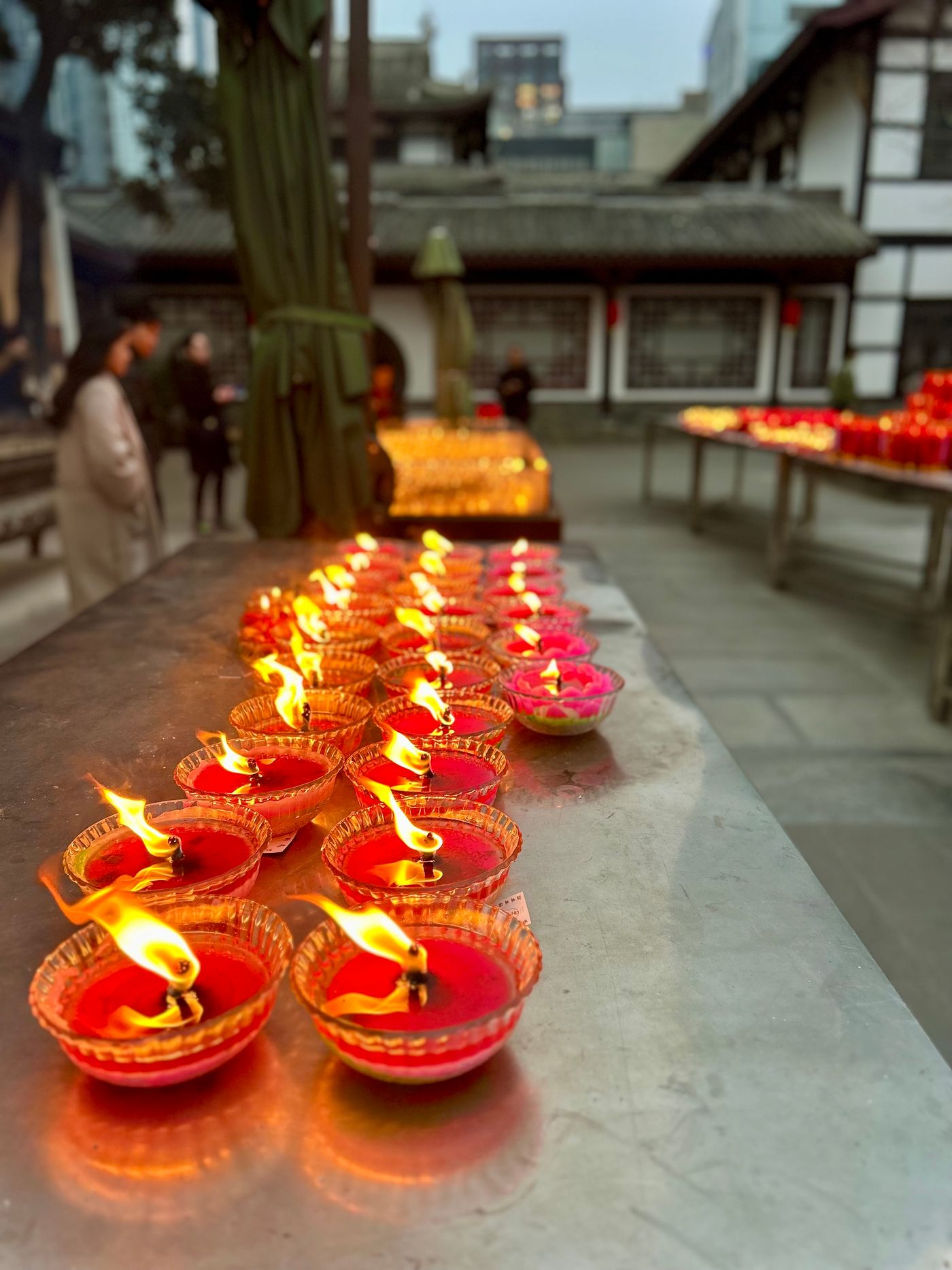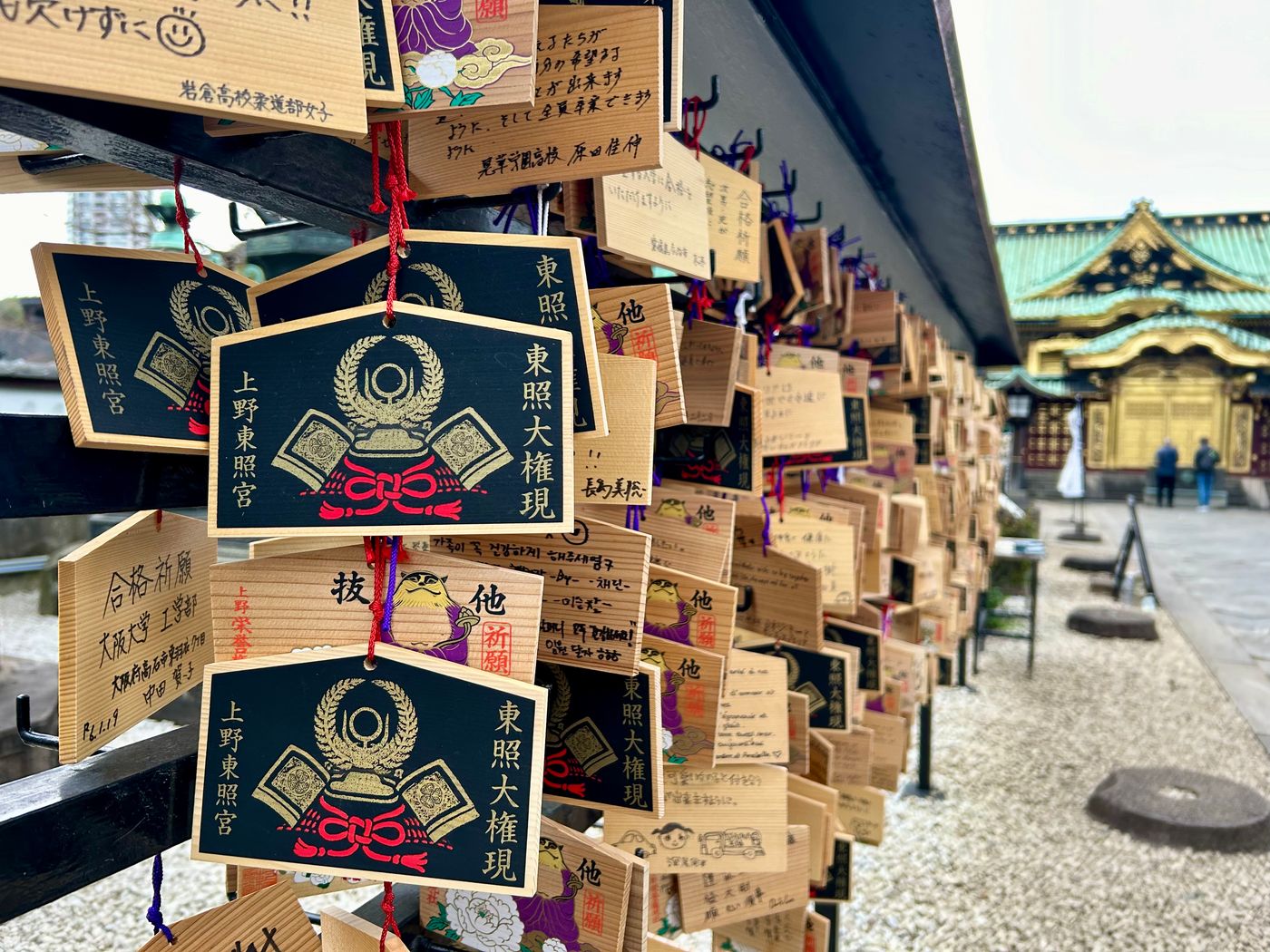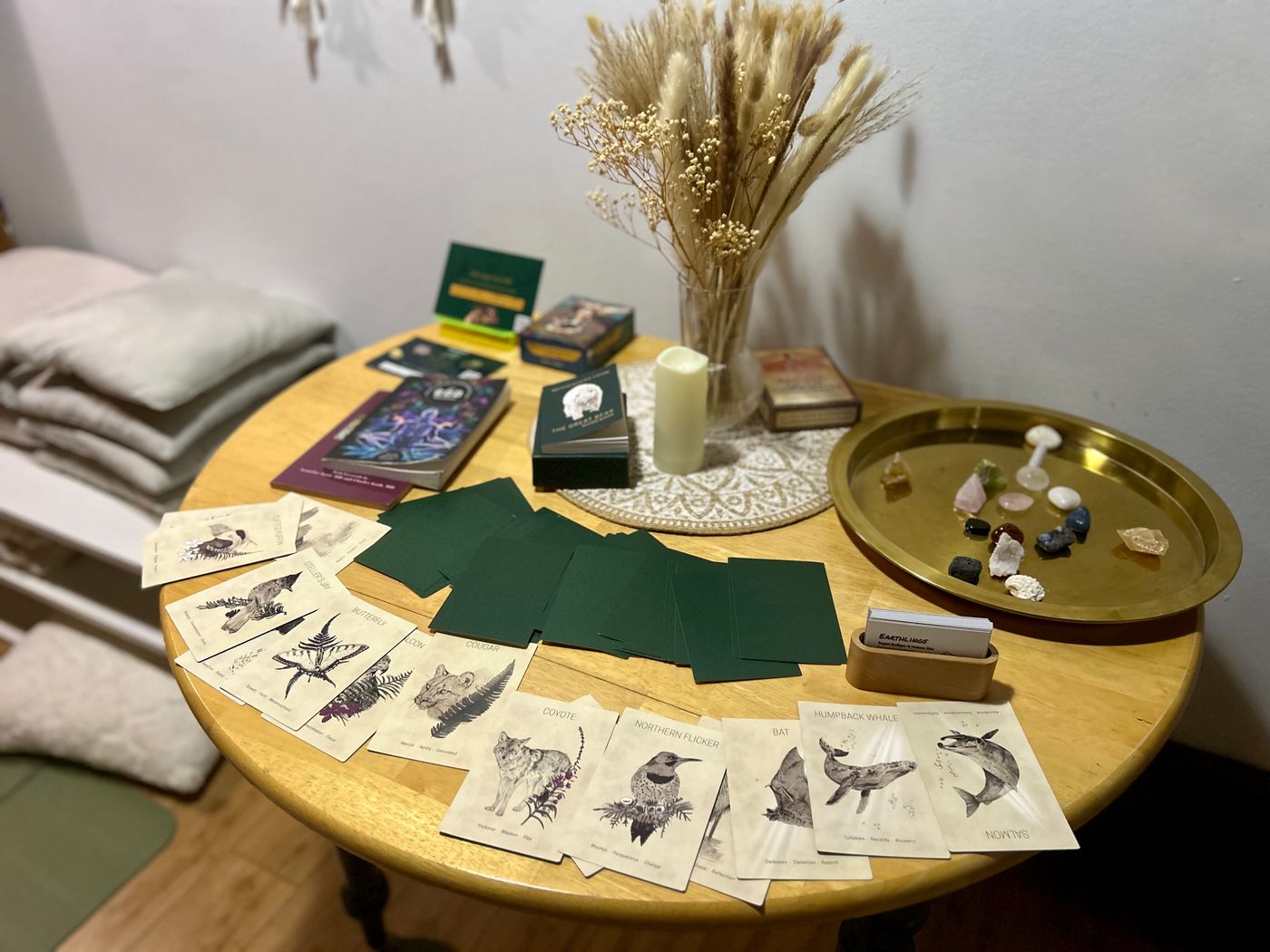
The Meaning of Ceremony
Temple

When I went to Chengdu, my hometown in the Sichuan Basin below the Tibetan Plateau in China, the most grounding thing I did was the most spiritual thing: I prayed with three incenses, then another three for my mother and another three for my grandmother. It was weirdly comforting to be in a third-century buddhist temple in the middle of a posh shopping district, to know that something as old as this–both in its form and its rituals–not only survives, but thrives in China’s modernization.
The candles mesmerized me–They just screamed abundance. We make candles and we don’t burn our candles like this. It was so beautiful to experience that whatever was happening at the temple was worth celebrating: Every moment flames danced together to the wind.
I was mesmerized by my auntie, my mum’s younger sister. She was intent and earnest with her prayers, whispering something about health and happiness for her and her family. Given the juxtaposition of her just having taken me to China’s best spa to have hyaluronic acid and collagen massaged into my face, I was intrigued by her devotion to traditional rituals.
I felt closer to her after. We are both materialistic in our different ways, but we both felt at peace and at home–perhaps a spiritual home–at the temple. The rituals allowed us to realize that we both had hopes and dreams and that we cared about our families, even when they anger or frustrate us.
Prayer plaques

One of the most beautiful decisions that my partner Sagan and I made on this trip to China was to fly through Japan. It was both of our first time on this island country that has facilitated cross pollination and mutual understanding across the Pacific Ocean and integrated influences from mainland Asia in its ocean-hugged independence. We encountered prayer plaques at a couple of Shinto shrines and found them to be intricate and practical works of art: Hand-painted wooden plaques that visitors could write their prayers on.
What intrigued me more though was the natural invitation to read the prayers of others as these wooden plaques dangled and spun at the whim of the wind: “Prayers for getting into Osaka University, Engineering Major” and a slew of similar prayers with several exclamation marks and happy faces–youthful hopes looking for anything that could help them. As hilarious and desperate as these prayers may seem, what I would have found comforting as these kids or their parents would be realizing that an entire tribe of students were hoping for the best for themselves too: They were not alone in their insecurities or uncertainties, but together formed a cohort of aspirational youths–They belonged.
In addition to aspirational students, tourists wrote messages of awe of gracing this golden shrine, gratitude for freedom to travel and explore, and wishes for health and security for themselves and their loved ones. I didn’t know these people, but reading their messages made me feel like I did, like they were my friends–They sounded dear in their humanity.
We bought an exquisite dragon plaque. It hangs over our floor-to-ceiling window overlooking Vancouver’s Chinatown and the northern mountains. I hope it helps us remember having hopes and dreams is a universal human quality and our deepest fears may not be our own–for we are all human.
Our community ceremonies
“It has a beginning, a middle, and an ending,” our friend Kai, who shared didgeridoo at our last Gentle Jaguar Sound Bath, said of what then qualifies as a ceremony. It sounds awfully like a story to me, though some stories want you to create your own ending–I hate those. Does having an ending in a ceremony qualify as having an ending to our experiences? In this moment it feels to me like we create an ending for our collective experience, but leave inspirations and material for further reflections and savouring for our individual journeys onward.

My favourite part of cleanup, which is the beginning of my share of our respective individual experiences post-ceremony, is checking out all the animals that people pulled from our Pacific Northwest animal oracle card deck. It is just good fun remembering who pulled which one and how they related to their animal and seeing the cohort of humans that just left with the kind of excitement of just having spotted a dozen wild animals–even better: They came to me.
Humour aside, I do think it is very important that we gather for ceremonies, which to me means connecting, collective experiences. We come from different cultures, families, lands and have different rituals, languages, and gold nuggets that we appreciate and value from our childhoods or adulthoods. We need a platform to share and celebrate what brings us together as humanity for we live with and among one another, to recognize that we are not that different from one another, and to get to learn from and respect one another, and in our case with a little help from loving humans, our ceremonial container, and our friend and sacrament: 5-MeO-DMT.
Learn more about our snuffed 5-MeO-DMT community ceremony and smoked 5-MeO-DMT community ceremony in an urban oasis in Vancouver’s Yaletown.
Helena Zhu 朱晓逸 grew up between a university campus that was so humble that I had to keep convincing myself growing up that it is apparently prestigious and a rural home where my parents went wild and bought a pair of deer, a German shepherd, chicken and ducks, and we are Chinese, so goldfish. All of that fell apart when we moved to Canada when I was 10 years old, so now I get to be extra weird without much ancestor supervision and reconcile all that I love and treasure here.